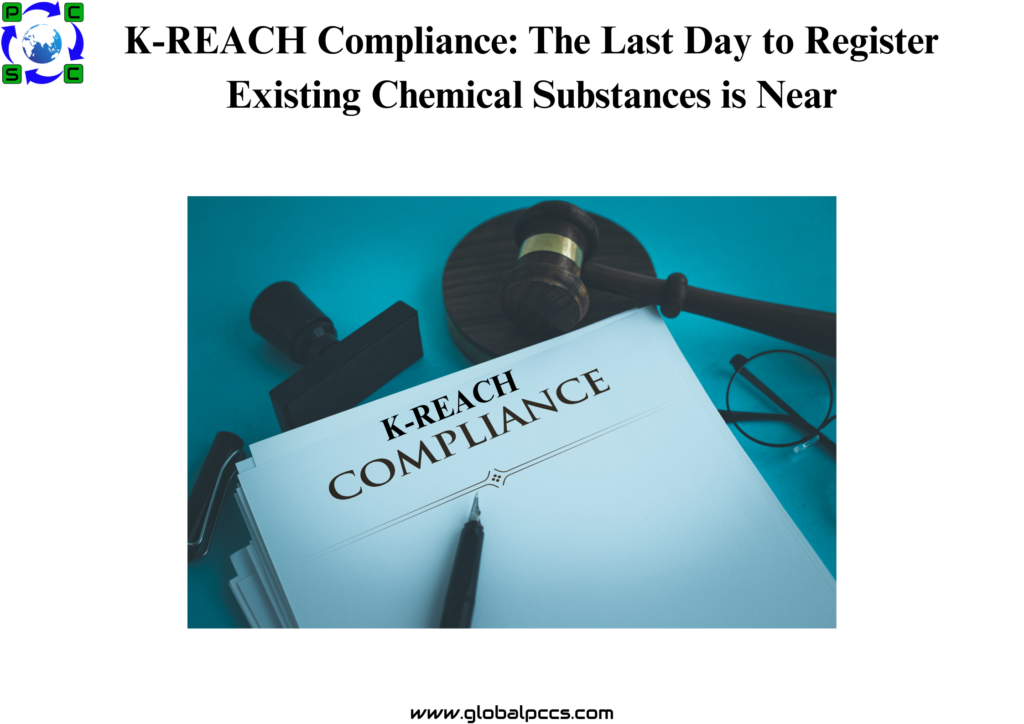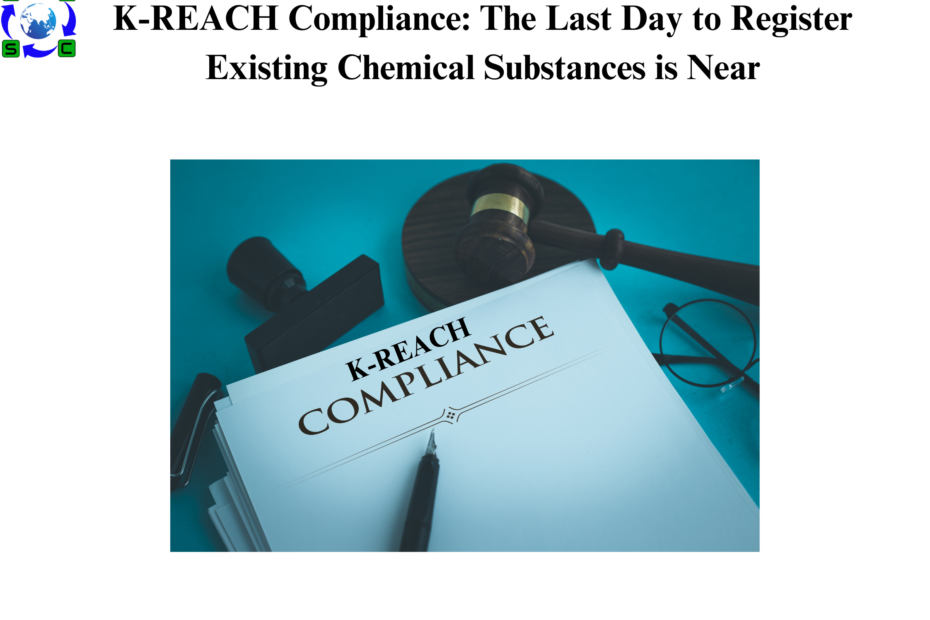 The Act on the Registration and Evaluation of Chemicals (AREC) (known as K-REACH) is a crucial regulatory framework in South Korea aimed at ensuring the safe management of chemical substances.
The Act on the Registration and Evaluation of Chemicals (AREC) (known as K-REACH) is a crucial regulatory framework in South Korea aimed at ensuring the safe management of chemical substances.
Chemical producers and importers must register their materials with the Ministry of Environment (MoE) in accordance with K-REACH if their manufacturing or importation quantities are above specific thresholds. A crucial requirement of K-REACH is the tonnage band for chemical registration. In particular, businesses handling 100–1000 tons of chemical compounds annually need to finish their registration by December 31, 2024.
Registration deadlines for existing chemical substances are as follows:

Key Requirements for Compliance
Data Submission: Businesses must provide comprehensive information on the chemical substances, including their characteristics, applications, and any dangers to human health and the environment. This entails compiling thorough data via experiments and previous research. In order to submit the data under K-REACH, co-registrants often acquire “Letters of Access (LoA)” from the Lead Registrant (LR).
Risk Assessment:A risk assessment that assesses the chemical’s possible risks must be included with the submission. This evaluation, which will be part of the Chemical Safety Report (CSR), should include a number of topics, including the impact on human health, environmental toxicity, and possible exposure scenarios.
Steps to Ensure Timely Registration
- Early Planning: Given the complexity of the registration process, enterprises should begin planning well in advance.
- Collaboration with Experts:Working with regulatory specialists and advisors can help the registration process go more smoothly. These experts may offer insightful advice and help in creating thorough and compliance dossiers.
- Estimated Time for Registration Process:Enterprises should budget around five months in order to ensure a timely registration, taking into account the time needed to gather Exposure Scenario (ES) data, acquire the LoA, compile the Chemical Safety Report (CSR), and have the authority evaluate the registration dossier. The major factors contributing to this timeframe include:
- Increased Registration Demand: The demand for registrations will probably increase as the deadline for registration draws near; it may take three months to compile a Chemical Safety Report (CSR).
- Extended Review Periods: The authority may take longer to assess applications due to the amount of dossiers that are submitted.
Consequences of Non-Compliance
Producers and manufacturers that don’t reach the December 31, 2024 deadline won’t be allowed to export their chemical products to South Korea until the registration process is finished. If you export without registering, you may face harsh consequences, such as fines.
Conclusion
For international manufacturers and producers who export chemical compounds to South Korea, the approaching K-REACH registration deadline for chemicals falling under the 100–1000 tonne annual threshold represents a major turning point. To effectively navigate the complexity of K-REACH, early planning and comprehensive documentation are essential.








 Authorised IMDS & CDX Training & Consulting partner for
Authorised IMDS & CDX Training & Consulting partner for






